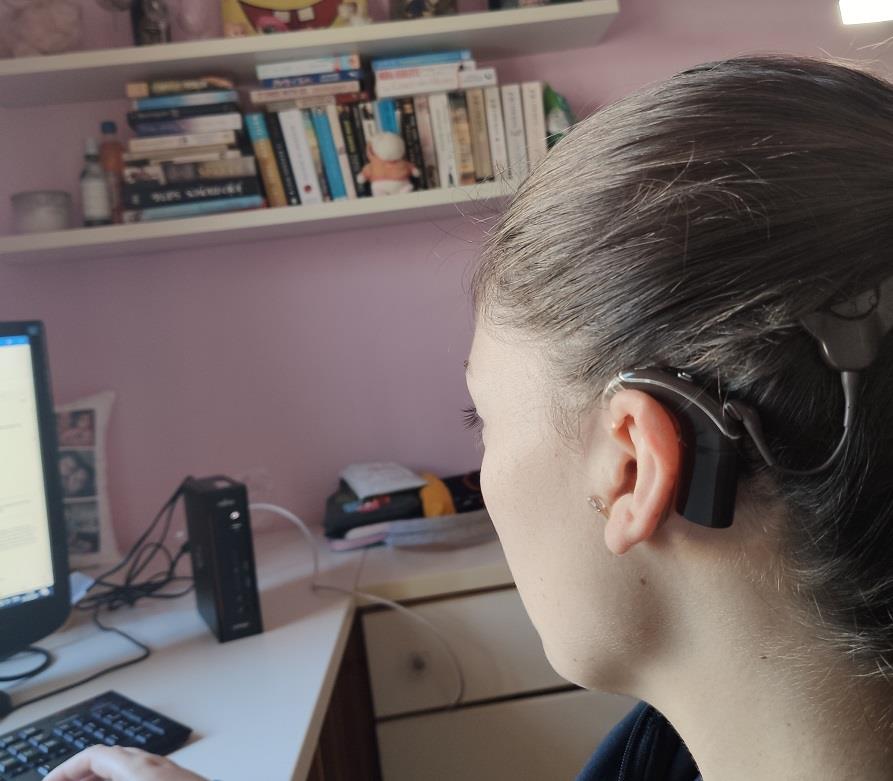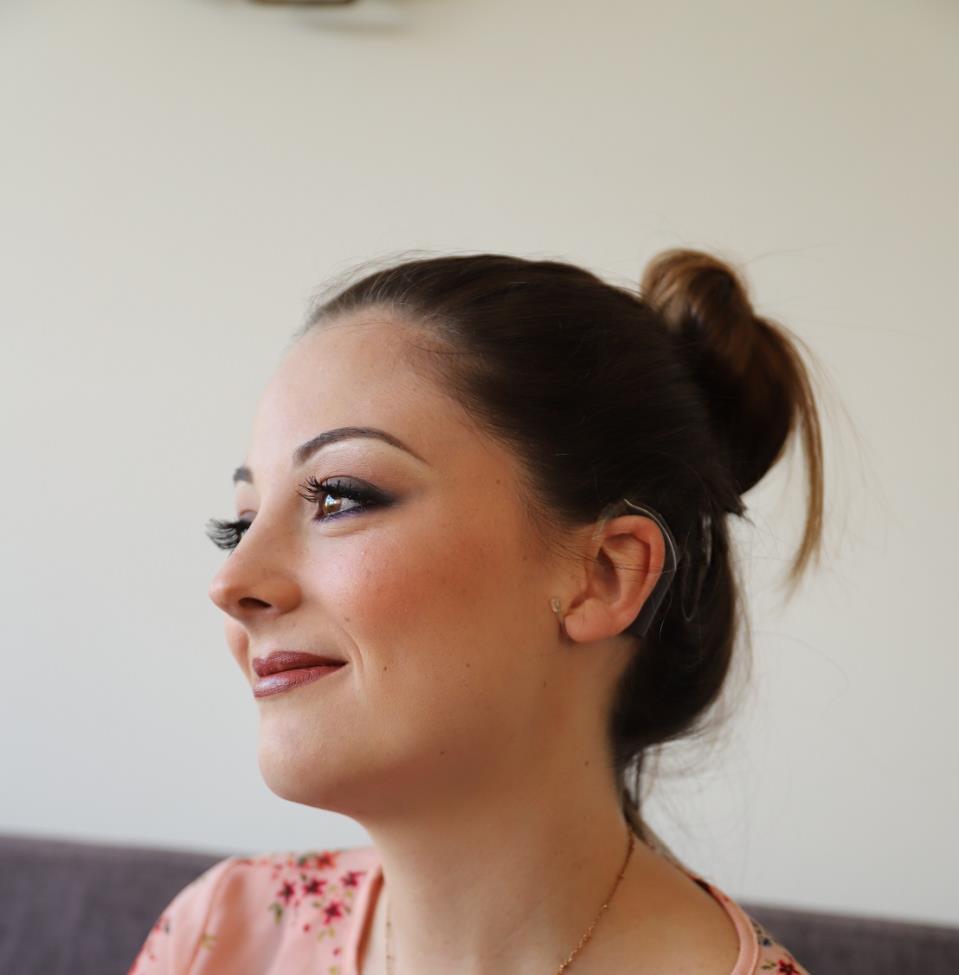A brave Maltese woman who was born with a heart condition and is now living her life as a bilateral cochlear implant (CI) user has opened up to raise awareness about the challenges and experiences that came along with it.
Around 23 years ago, Luisa Fenech was born with a hole in her heart and given medication to treat her condition. She was then told that it was safe for her to go home. However, nine months later, her parents realised that Luisa wasn’t reacting to any noise, even to loud noises such as the sound of pots and pans being banged in her face.
Her parents immediately took Luisa to a doctor for a check-up and they found out that she had gone profoundly deaf.
Speaking with The Malta Independent on Sunday, Luisa explained how medical experts who treated her came to believe that her hearing impairment was a result of the medication she was given to treat her heart condition.
“Following this diagnosis in 1999, I had the option of being fitted with a cochlear implant in my right ear, however the operation was not available in Malta. For this reason, my parents took me to do the operation in Manchester when I was just two and a half years old. The speech therapy sessions following the operation were also done in Manchester, thus together with my parents and sister we had to fly to the UK frequently,” she said.
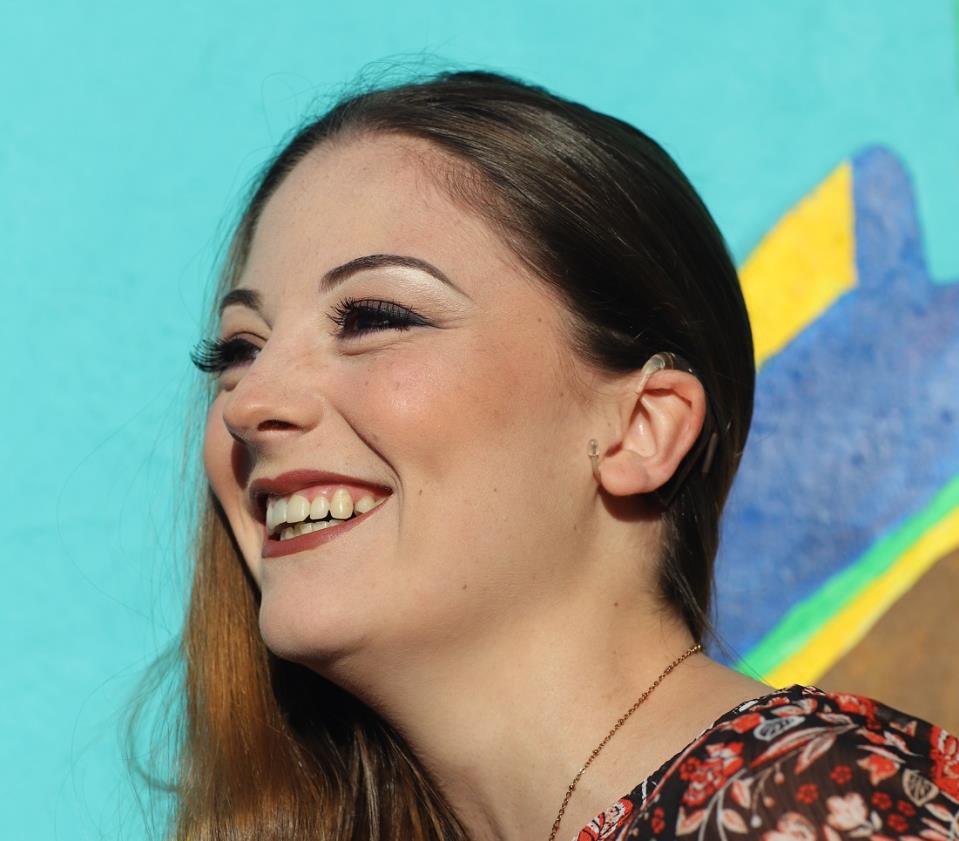
In simple terms, a cochlear implant is a small electronic device that can help provide a sense of sound to a person who is profoundly deaf or severely hard-of-hearing. An implant is different from a hearing aid as it needs to be surgically fitted and placed under the skin.
Fast forward 12 years living with one CI, at 14 years of age, Luisa went through another operation as she was fitted with her second CI in her left ear. This time, both the surgery and speech therapy sessions were done locally.
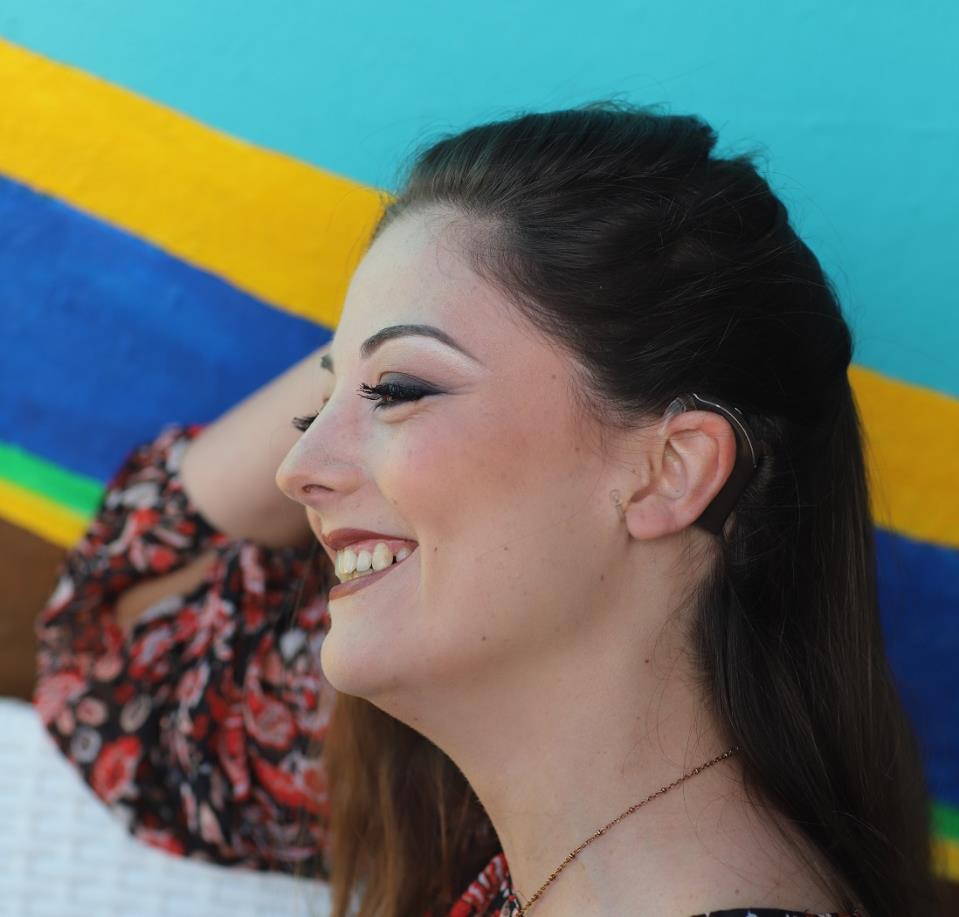
A second implant
Being fitted with a second CI in her left ear was very unexpected and it was only done because Luisa wanted to. At 14 years of age, Luisa saw that the first cochlear implant operation was going to be done in Malta so she wanted to do her second one, and went under the knife in May 2012.
“Doctors and family members were all very hesitant and apprehensive to allow me to go through yet another major surgery as it had its risks. I understand that at 14 you might not really comprehend or realise how difficult something can be. Thankfully, I had a lot of support and I wouldn’t change it for the world,” she said.
The process of learning how to use a cochlear implant is very important. After surgery, CI users need strong support from parents and other family members. Frequent therapy sessions are also crucial as these will teach them how to care for and operate the cochlear implant. People with cochlear implants begin auditory rehabilitation (listening therapy) as well as speech and language therapy soon after surgery. These sessions help identify sounds and associate meanings with those sounds, whilst speech therapy helps with the development and understanding of spoken language.
Despite these frequent sessions, Luisa still has trouble reading certain words to this day, words she would never have heard before, however, this is something quite normal for a person who has such implants.
Getting cochlear implants was relatively new at the time for Luisa and her family. Despite this, her parents were determined to learn more about it and decided to form part of an association with other families and children who were going through the same experience to spread awareness.
“Back then, this association consisted of a very small group of people, but by time this has grown quite a lot. There are a lot of people I’m starting to get to know who have cochlear implants as well so it’s good to see that this is increasing in Malta,” Luisa said.
Although Luisa doesn’t recall the road to her diagnosis as she was very young, this situation was quite a difficult one for her family too.
She explained that, “in the process, my parents had my older sister which resulted in her being left out of the whole equation. Whenever we travelled to Manchester, my parents would bring my sister along with us so she would be part of the process with us as well. To this day, I feel bad for taking all the attention away from my sister, but she is so supportive and I’m very glad that I had her by my side through the whole journey,” Luisa added.
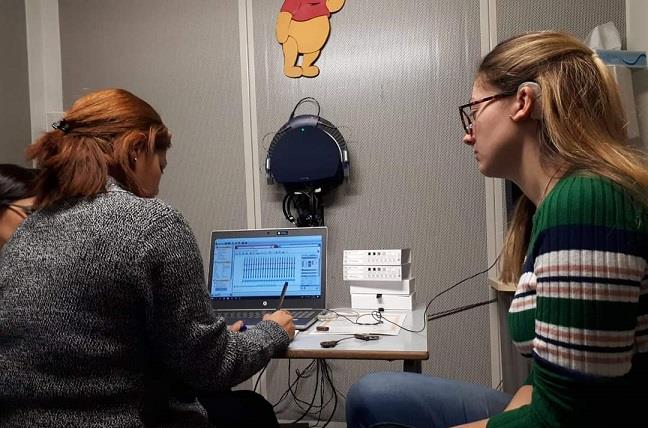
Daily challenges
Having cochlear implants has been of great help for Luisa, however, being a bilateral CI user has its challenges, which Luisa has to face on a daily basis.
“When I was at school, I always had to sit at the front. I had to have a carpet placed under my desk to make the sound more amplified. I also made use of a hearing device during lessons in order to have the teachers’ voice transmitted directly to the device for clarity and understanding,” she said.
In addition, being in a place where there is a lot of background noise, such as sport gyms, can also be very challenging. Luisa explained that, “echoey and loud background noises make it difficult for me to understand because the cochlear implants I have pick up on loud noises, so if there is a loud background noise it automatically ‘talks over’ the person talking to me, making it very difficult to understand.”
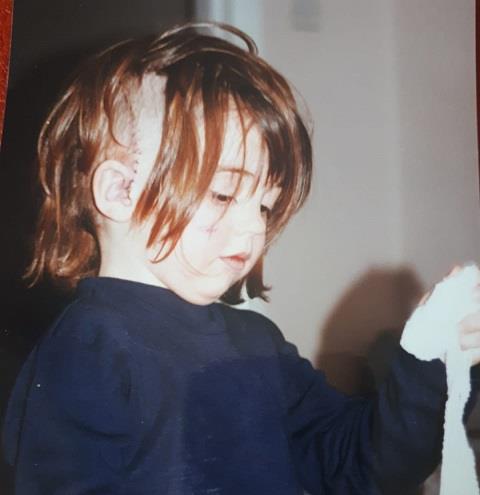
Covid-19 and masks
Due to the Coronavirus pandemic, people are obliged to wear masks and stand a few metres apart. This situation is presenting new challenges for everyone, but especially people with hearing loss or communication problems. Wearing masks can muffle sound, making it difficult to understand speech and they can also take away the ability to read lips and see facial expressions.
Luisa remarked that masks have been a huge problem for her.
She explained that in places where there is a lot of background noise, under normal circumstances, she usually relies on lip reading. With the wearing of a mask this is no longer possible and the muffled sound doesn’t help either.
“If it’s difficult for you to hear someone speak when wearing a mask, it’s difficult for me as well,” she said.
Other scenarios include not being able to swim with cochlear implants during the summer months or whilst practicing sporting activities such as handball.
“Not long ago, I used to swim and not hear anything but only rely on lip-reading. Nowadays, I have this device called an Aquaplus which is a waterproof cochlear implant that I can swim with. The situation got better but the challenge is still there,” Luisa said.
With regard to sports, Luisa explained that, “as a person who plays a contact sport like handball, communication with my coach and teammates tends to be a challenge but manageable, as we have found other ways to communicate and we adapted to the situation.”
She added that this is especially a challenge during a game because the coach is usually the one furthest away but is the one who is giving directions.
“In such a situation, my coach informs the person who will be playing next to me to tell me what he said. During training, my coach usually pulls me aside to talk to me and ensures that I understand what he is saying.”
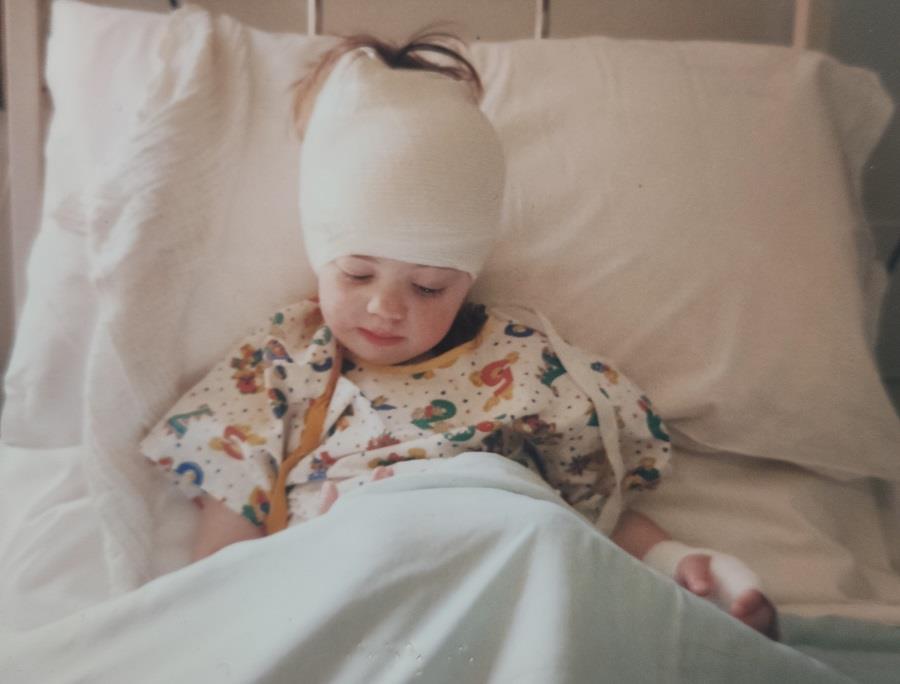
Family support
Despite all these challenges that Luisa went, and is still going through, she is lucky enough to have had all the support from her family, friends and even colleagues.
“I always say if I had the opportunity to live my life again, I would live it the way it is now. Although I had two major surgeries in my head, countless appointments of speech therapy, yearly audiology appointments, learning how to talk, listen and hear can be hard work, difficult and challenging, at the end of the day it’s all worth it,” Luisa said.
Asked what she would wish to tell others who have received a similar diagnosis or are going through the same situation but might not have such a positive approach, Luisa encouraged people to remain positive, never give up and keep pushing through.
“I was gifted with my hearing and other people can be gifted with their hearing too. If you work hard, you will get there as it’s a great thing to be able to hear.”
She also encouraged the people who are providing support to keep doing so, as “if I didn’t have all the support I received, I would not be the person I am today.”
Luisa has also created an Instagram page called @C Into My Hearing World, with the purpose of raising awareness of the challenges one faces as a bilateral CI user and help anyone who might need some support, guidance or even someone to talk to.
